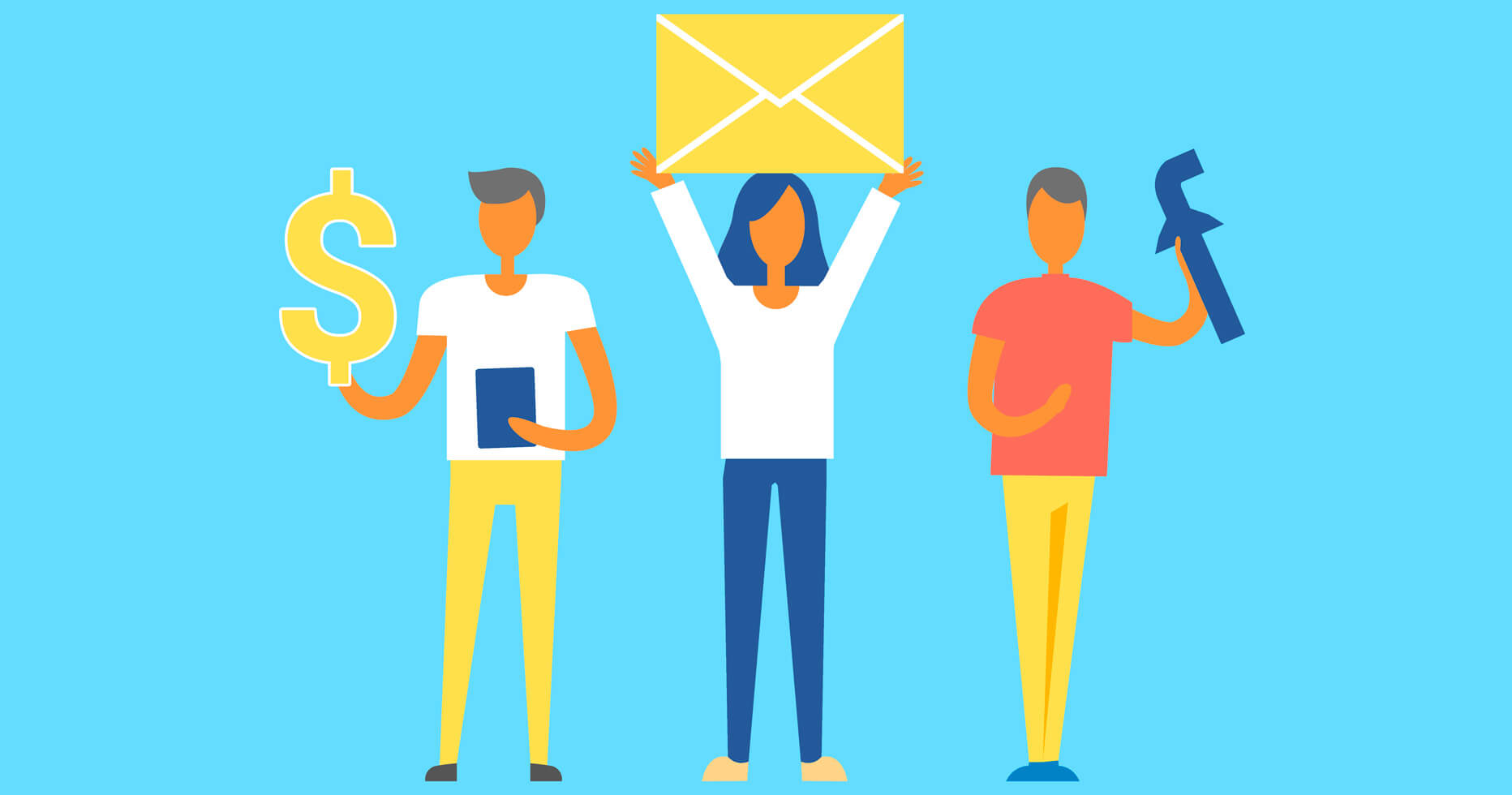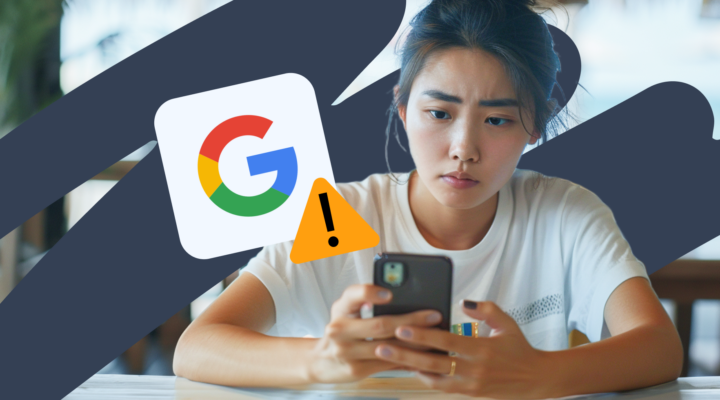Facebook Messenger is the second most popular messaging app in the world. With over 1.3 billion users/month, there is untapped potential in the app. From this post, you’ll learn what makes Facebook Messenger a great tool for business and what business problems you can tackle by using the app.
Facebook Messenger Statistics That Marketers Need to Know
To tweak your Facebook Messenger marketing strategy for success, you should know some facts about the app:
- There are over 1.3 users/month on the app.
- The open rates are incredibly high, at 80% in comparison to the 20% to 25% of most email campaigns.
- According to Statista, Facebook Messenger is the most popular mobile messaging app in the USA, as of September 2019.
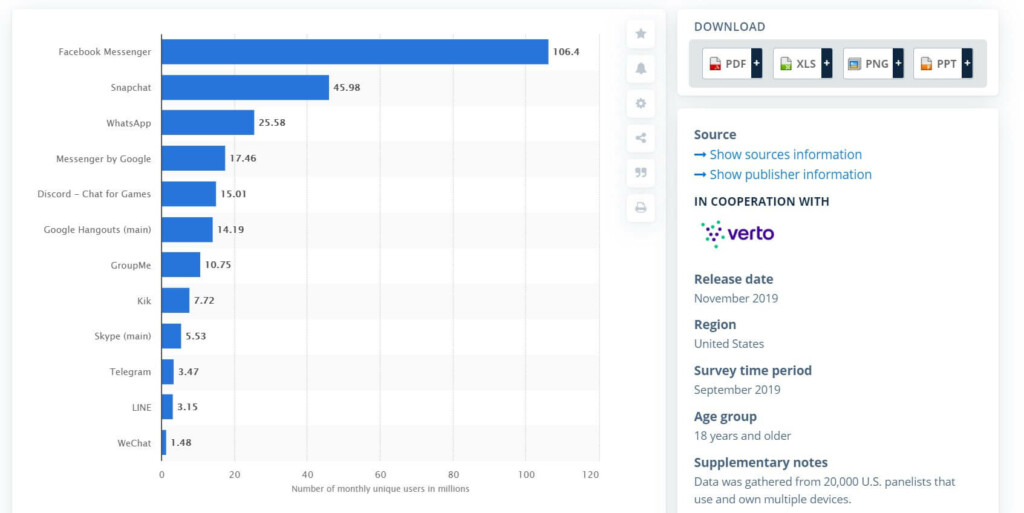
- Facebook Messenger is the second most popular messaging app worldwide (second only to WhatsApp).
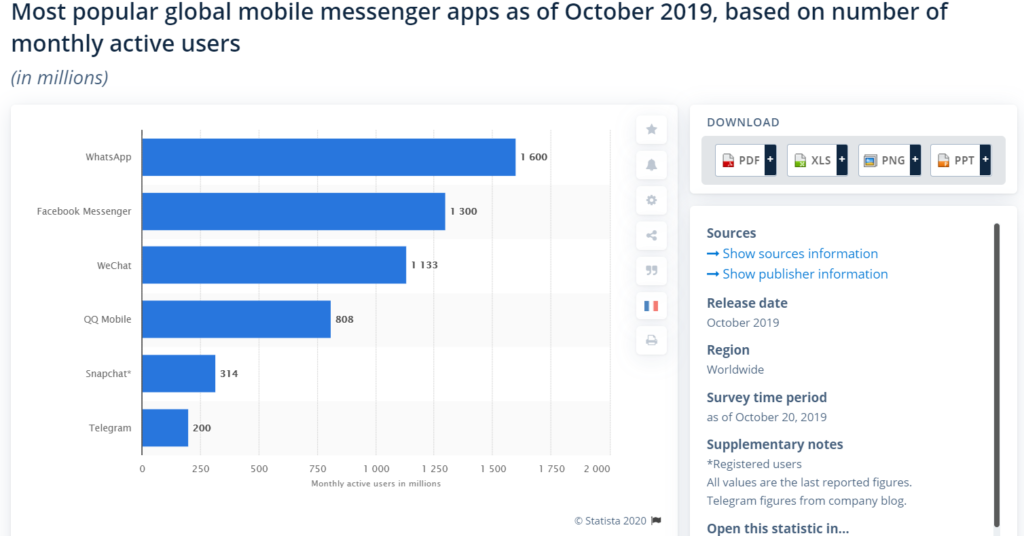
- 1 out of 2 respondents considers messaging an innovative communication method.
- 20 billion messages/month are exchanged between consumers and businesses on Facebook Messenger.
Why Should You Use Facebook Messenger for Your Business?
- According to Facebook, people are more inclined to buy from a brand they can message directly.
- 61% of respondents say that messaging is the most convenient way to reach a brand.
- After messaging a business for the first time, people start using the messenger as the go-to medium and report that they message a brand during all stages of their consumer journey.
- Facebook Messenger marketing is an innovative strategy that allows you to get your message across and garner a lot of attention. Besides, it’s an effective way to combat the problem of “banner blindness” and email fatigue.
- A very small percentage (about 1%) of businesses are active on the app and there are only 300,000 active chatbots, so competition is relatively low and there is a lot of room for development.
- Being easy-to-access and open to dialogue makes a brand more trustworthy and credible.
- Messaging allows people to get quicker, more personalized responses.
- Facebook Messenger ads are more cost-effective than Facebook ads.
- Messenger marketing resembles one-on-one communication and helps boost user engagement.
- Purchases are possible via the app.
- You can leverage the power of chatbot marketing.
- Click-to-messenger ads can be placed on the Facebook, Instagram, and Messenger home screen. If a customer clicks on the ad, a conversation with your brand will start in the Messenger.
How Can You Use Facebook Messenger for Business?
Though messenger marketing is a cutting-edge strategy, there are many ways businesses can use it to their benefit. Here are some of the most effective and widespread ways to use the Facebook Messenger app for your business.
- Providing lightning-fast customer service. The app is a great tool for providing customer care, as it allows marketers to offer 24/7 customer support, resolve conflicts, and deal with complaints in one-on-one conversations.
Make sure you respond to messages quickly. If you consistently provide timely responses, you may even get a “Very Responsive to Messages” badge on your page.
- Offering quick answers to consumers’ questions. Give answers to the most frequently asked questions about your brand. Ask your support team about the most pressing issues your customers have and do your best to address these issues.
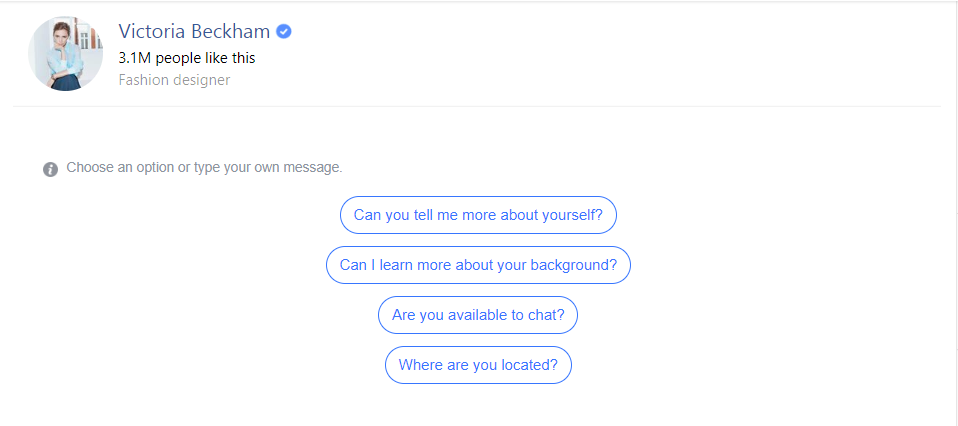
- Doing affiliate marketing. Affiliate marketing is one of the most lucrative marketing strategies you can leverage on a messenger app. The term denotes a marketing arrangement in which affiliates get paid by advertisers for driving traffic to an advertiser’s website. In a nutshell, affiliates find a product they like, promote it to others, and earn a commission. You can promote your affiliate offers via Facebook Messenger, for example, by developing a streamline of messages to help your customers discover a product and make a purchase.
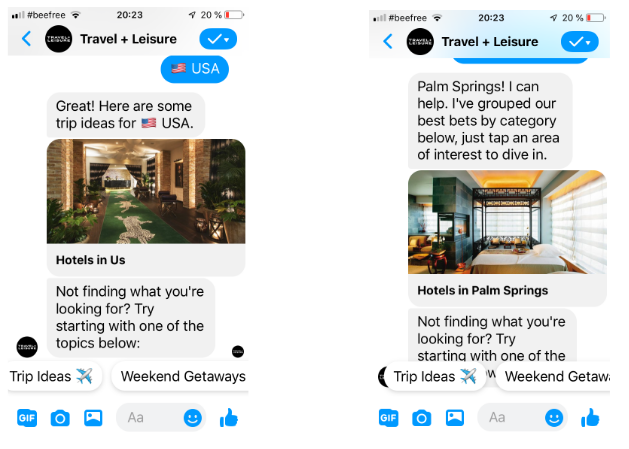
- Helping users perform a search or provide more detailed answers to their queries.
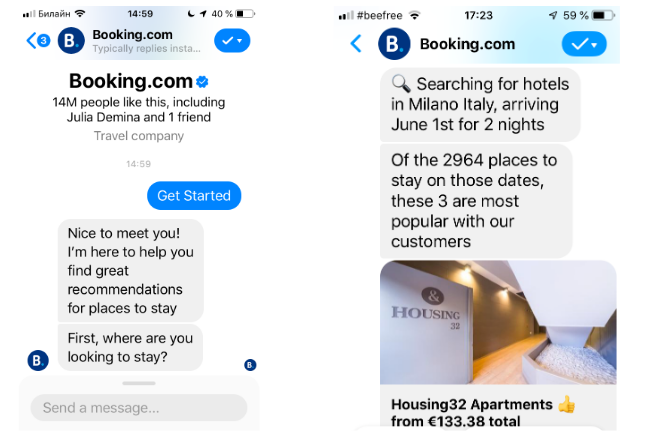
- Creating an unusual and engaging customer experience. You can use a chatbot to boost engagement levels and entertain your customers.
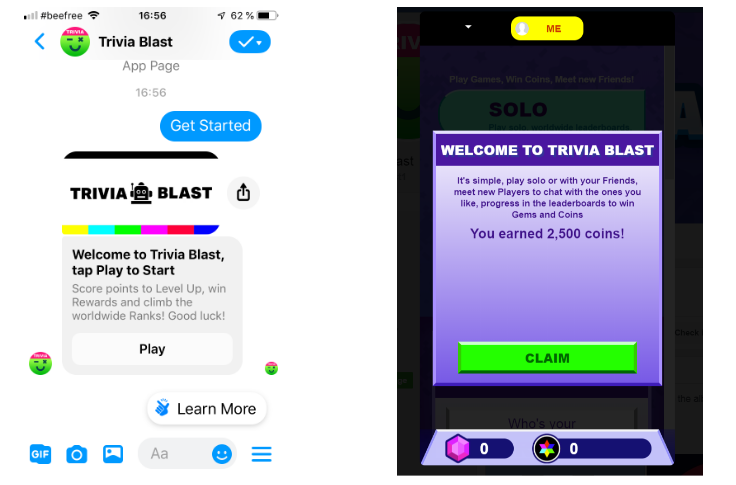
- Delivering personalized content to your target audience. Make sure users can discover the content they want to read. To make the process of discovering content easier, create browsing menus.
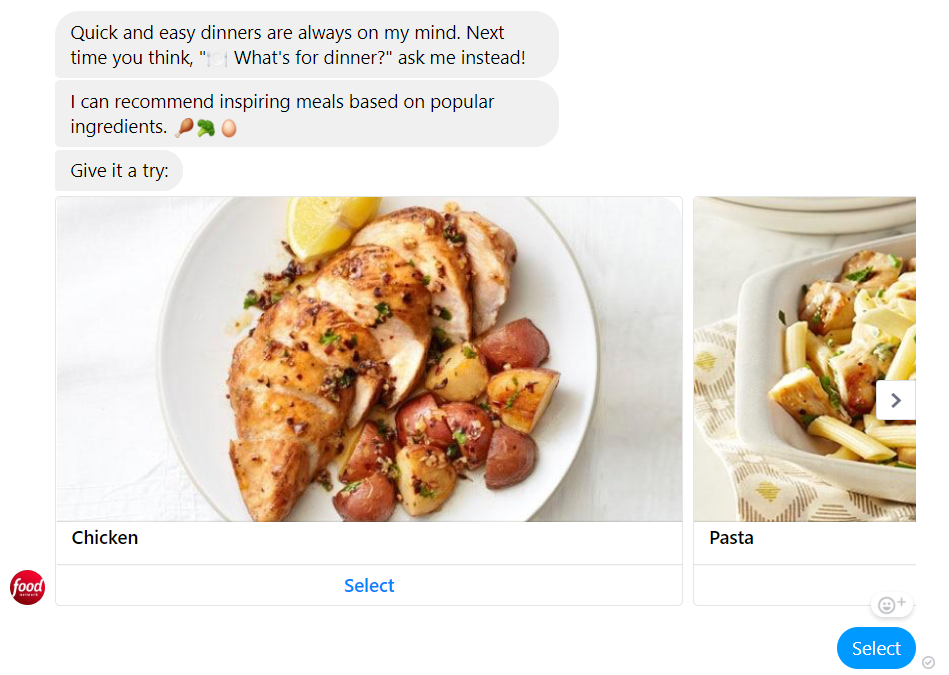
- Sending updates and important info about events people have registered for.
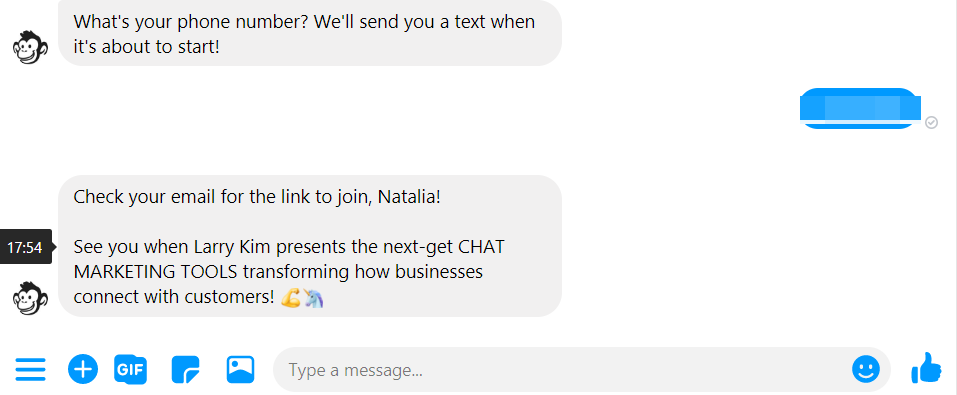
- Helping customers make purchases and track orders without leaving the app. You can use the app to walk your audience through all the stages of the marketing funnel. Start by telling your audience about your product and help them make purchasing decisions. Finish with the purchase via the app. In addition, Facebook Messenger chatbots can process payments.
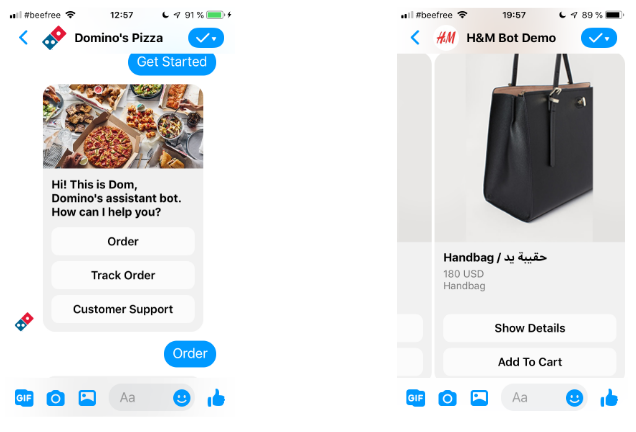
- Recovering abandoned carts. Send a friendly message to a user who has abandoned their cart. Offering a discount can incentivize them to complete the purchase.
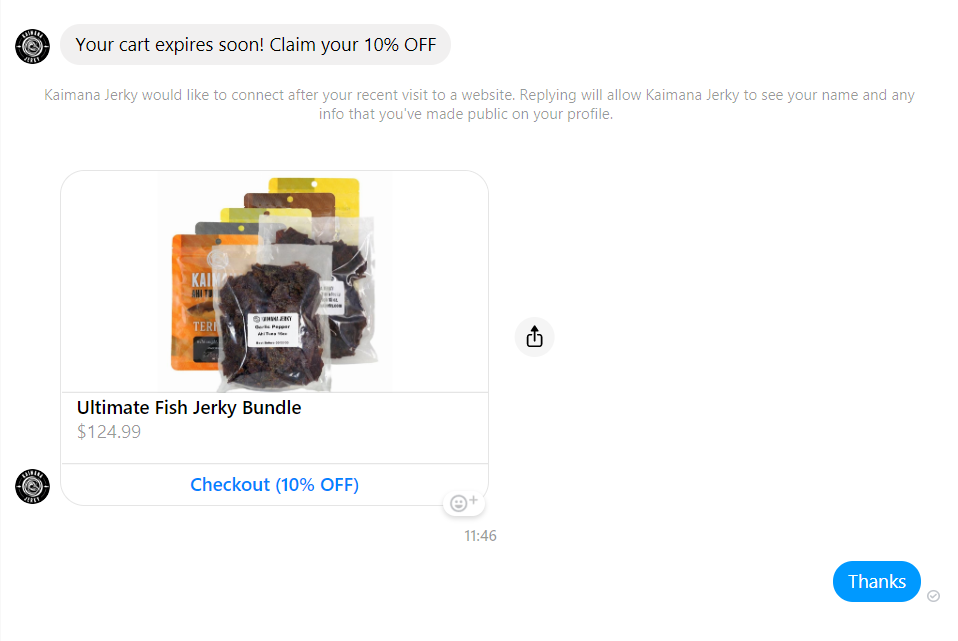
- Driving traffic to your landing pages. For example, you can offer your audience content as a solution to their pain points and encourage them to navigate to your website for more assistance.
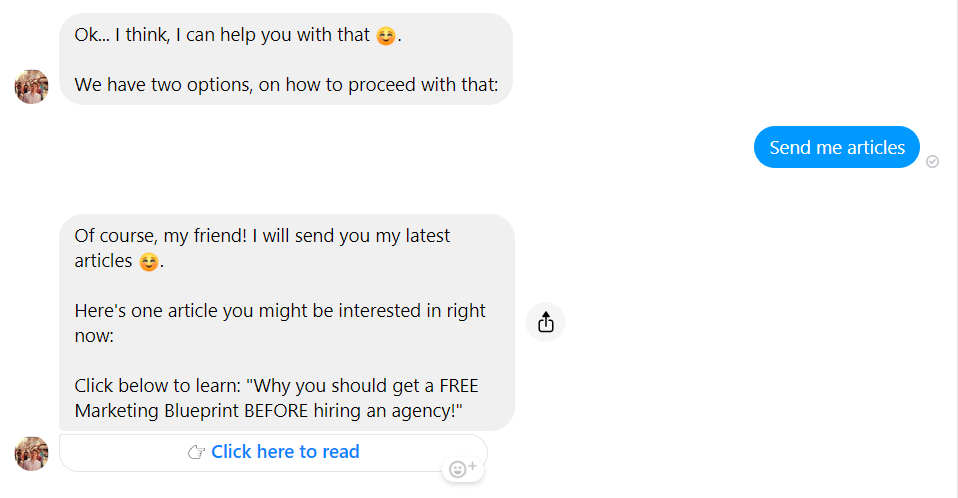
- Generating leads. Information exchanged with your customers on the Facebook Messenger can provide you with valuable insights about your audience and help you build a rapport with them. You can use this information to establish a long-lasting connection with users. To do this, offer a special deal or bring your customers up to speed about new products or services.
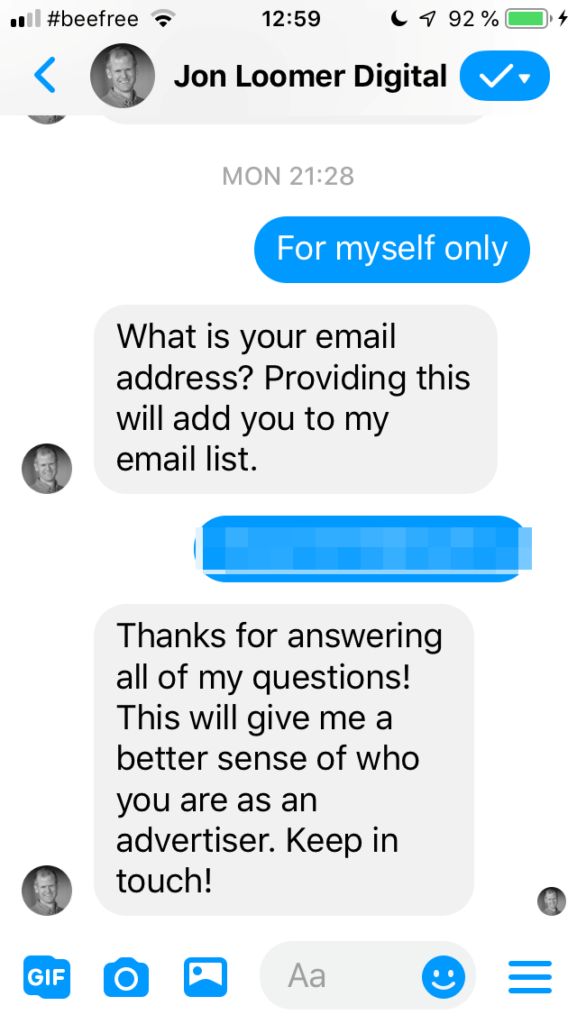
You can also leverage Click-to-Messenger ads to start a conversation with a user and generate high-quality leads.
- Asking users for feedback, reviews, or ratings.
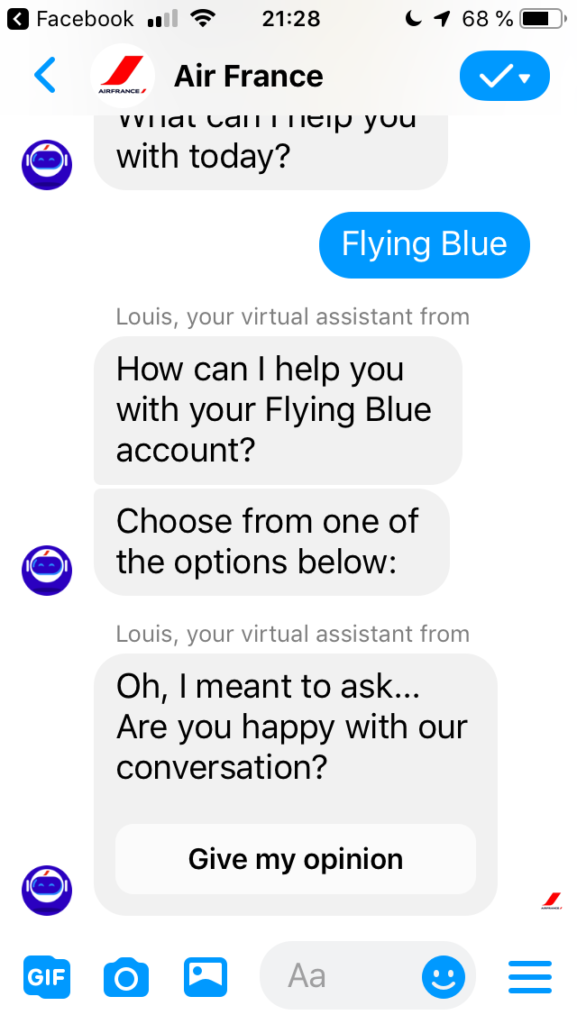
- Keeping your audience up-to-date on the new products and services you’re offering.
- Engaging users in a conversation automatically after they comment on your post. This strategy is known as Comment Guard and has several benefits. First, it helps you generate more leads. Second, it allows you to boost engagement, which helps you rank higher through the Facebook algorithm. To incentivize users to comment on your post, use polls and surveys or ask them answer a question or share their opinion on a hot topic with a gif.
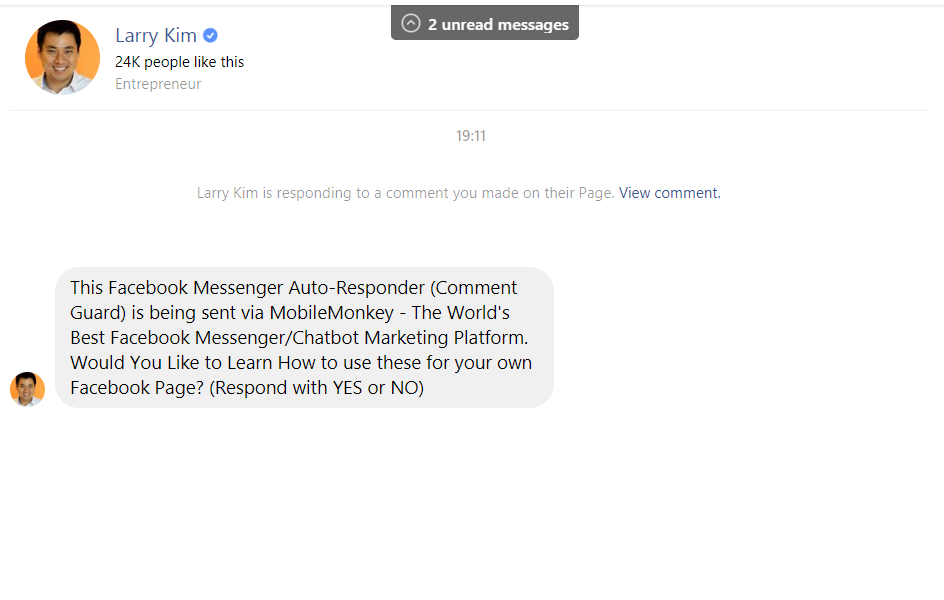
Most of these and other tasks can be performed with the help of a Facebook Messenger chatbot.
Facebook Messenger chatbot marketing
Chatbots make Facebook Messenger stand out. Chatbot marketing is the buzzing among those in the world of social media marketing today, as it is one of the most effective marketing strategies on the app. Chatbots help marketers achieve a wide range of marketing purposes and allow them to automate communication with their customers without removing the human touch.
So, what is a chatbot? It’s an artificial intelligence software that is built to conduct conversations with users on a messenger and provide automatic answers to any questions received.
Building a chatbot doesn’t require coding skills. Here’s a guide to teach you how to create a Facebook Messenger chatbot. The web abounds in easy-to-use tools you can leverage to create a Facebook Messenger bot, including Chatfuel, MobileMonkey, ManyChat, etc.
Actionable Tips on Creating a Powerful Facebook Messenger Chatbot
- Before you start creating a bot, define the goal you want to achieve with it. You can create a utility bot or a bot that will entertain your customers. In addition, you should decide how you want your customers to interact with the bot. You can gain insights about all these issues from the way customers are interacting with your brand through other channels.
- Create a bot with a vivid and memorable personality, which will resonate with your target audience.
- When developing a conversational style for your chatbot, make sure it aligns with your brand’s values and personality. For example, if you’re offering consulting services or specialize in finance, you’re likely to stick to a more formal style than if you were a brand selling casual clothes.
- Take advantage of the fact that your customers are already on the messenger and ask them to fill out surveys and write reviews. To do this, leverage the Surveybot app, which doesn’t require any coding and is easy to implement. Make sure your survey is short and easy to fill in. You can also incentivize your customers to fill in surveys by offering them a discount.
- Create engaging chatbots that are fun to communicate with.
- Once you’ve created your chatbot, start promoting it on your Facebook pages and through Facebook Messenger buttons.
- Make sure the customer’s journey on the app is short and that the interaction with your chatbot isn’t long-winded.
- Provide valuable content to your audience.
- Create a well-developed stream of messages that help customers find the information they’re looking for and provide recommendations based on message history.
- Create browsing menus to help users perform searches and show what your chatbot can offer.
- Use emoji and other visuals in your chatbot messages to make them more engaging and establish a conversational tone.
- Give users a chance to opt out and unsubscribe.
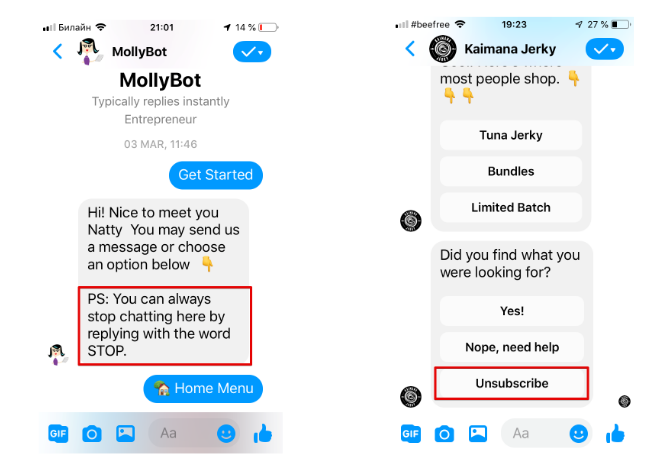
- Create personalized chatbot messages.
- Offer your audience exclusive discounts and special offers.
- Leverage the power of chatbots for upselling and cross selling.
- Make sure your users are always aware that they are talking with a bot.
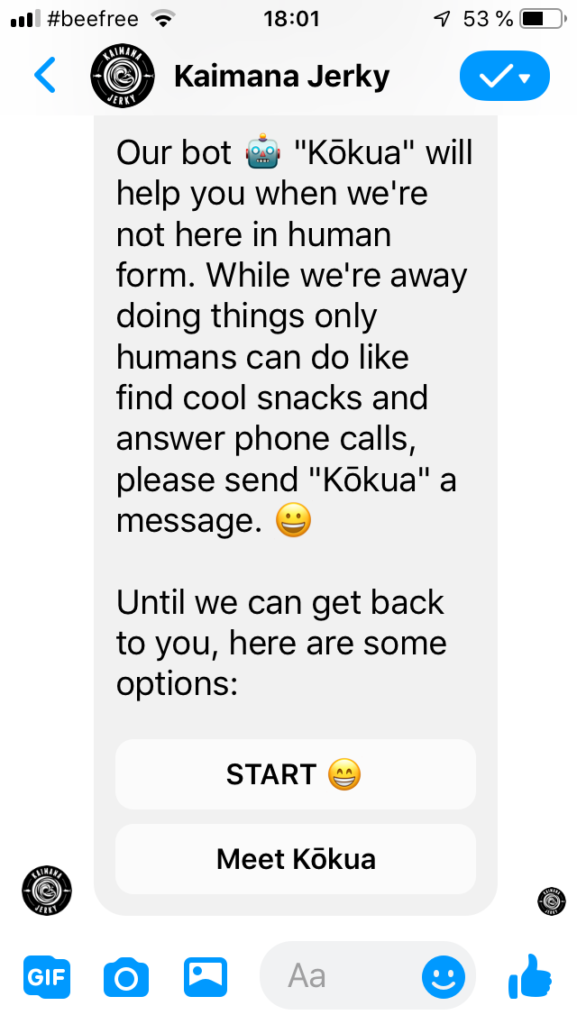
If an issue requires a human to be involved, have your bot connect the user with a member of your customer support team.
Best Practices for Facebook Messenger Marketing
- Before you start Facebook Messenger marketing, map out the strategy you’re going to follow. You need to define your goals and response times. In addition, decide whether you’re going to provide automated or manual responses.
- Notify your audience that you’re on the app. You can encourage your audience to start a conversation on Facebook messenger by using the Send Message button in your posts and on your page.
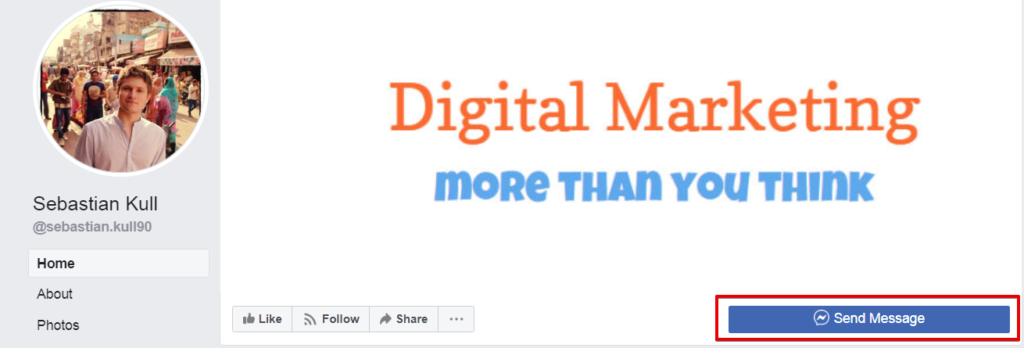
- Work out your brand’s tone of voice and stick to it.
- If you send users to your website, make sure it’s mobile-responsive.
- Offer your customers weigh alternative ways to contact you if they need additional help.
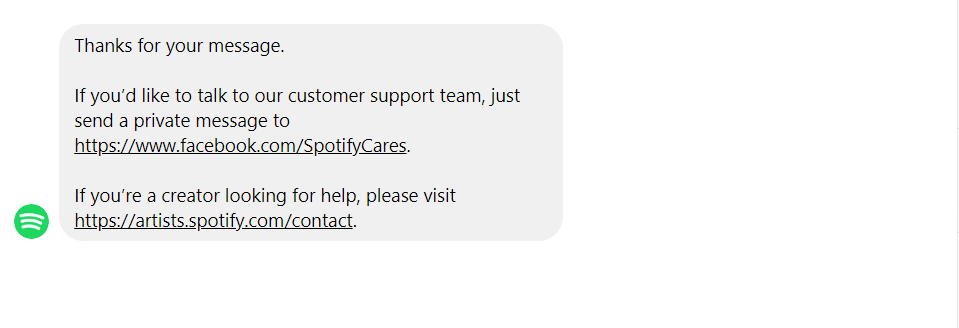
- Make the most of click-to-messenger ads to reach out to your target audience.
- Create engaging opt-in messages to get a user’s consent to receive your messages.
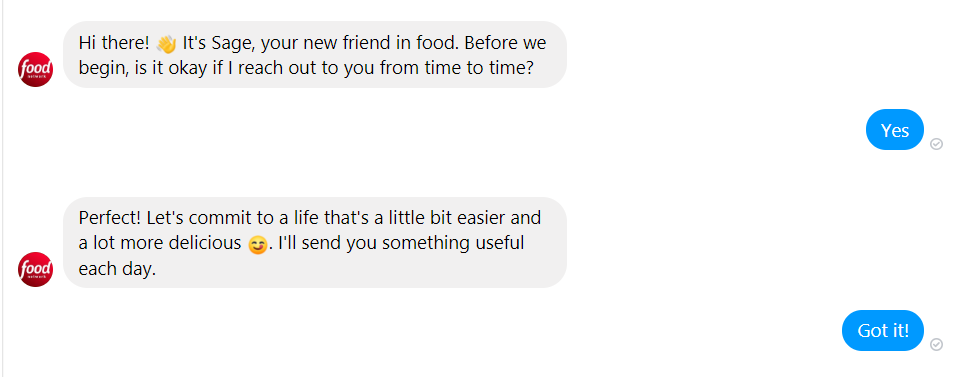
- Implement a Facebook Messenger chat widget on your website.

- Give your audience a choice on the type of content they want to receive from you.
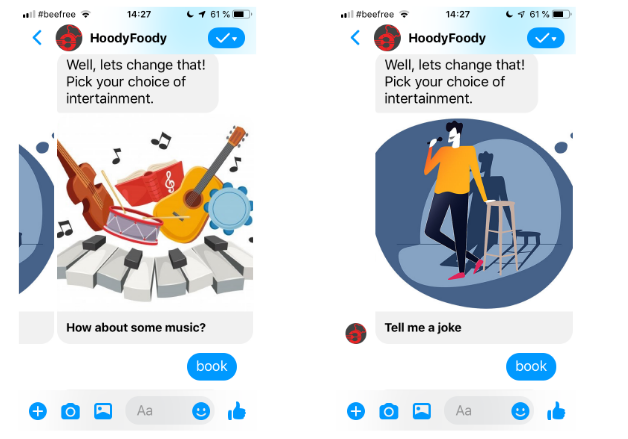
- Run Facebook Messenger ads to boost your marketing efforts.
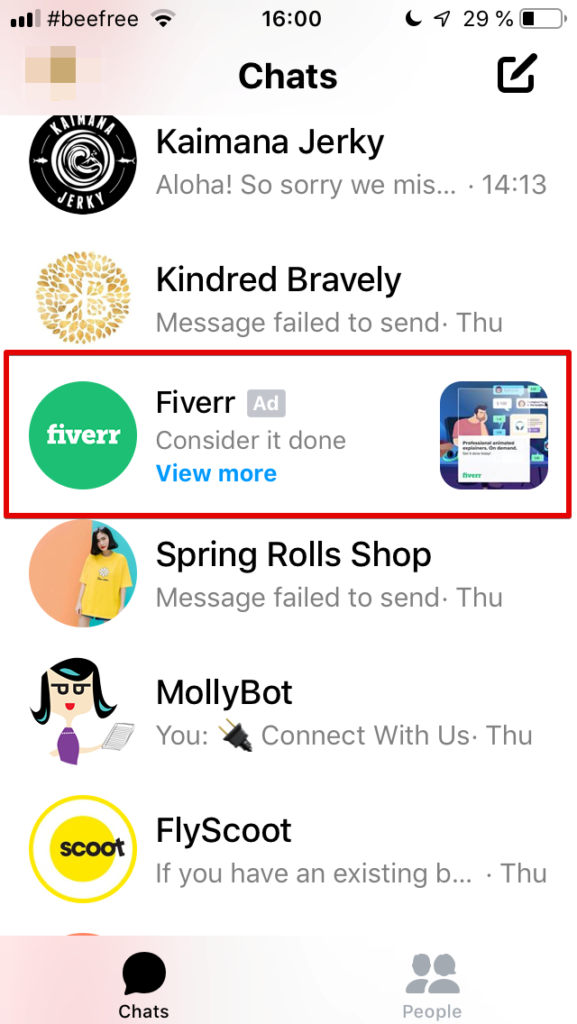
Should You Use Facebook Messenger for Business in 2021?
The answer is definitely yes! Messenger marketing is rapidly becoming the new normal, as this tactic allows companies to bridge the gap between the business and its customers.
Though Facebook Messenger marketing can’t substitute traditional marketing methods, it’s a great way to boost your existing approaches and yield better results. Become a Facebook Messenger marketing pioneer and win big!

